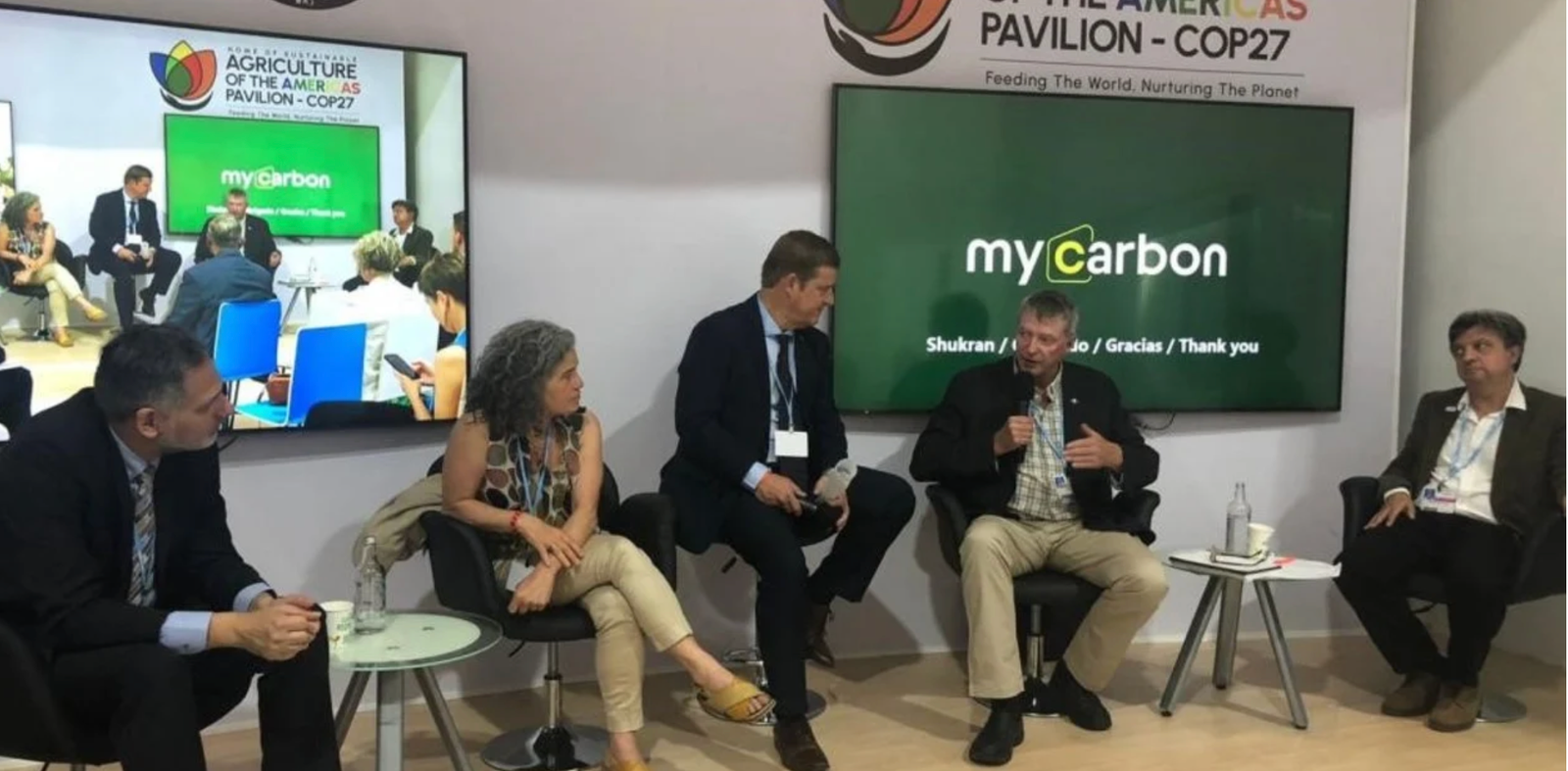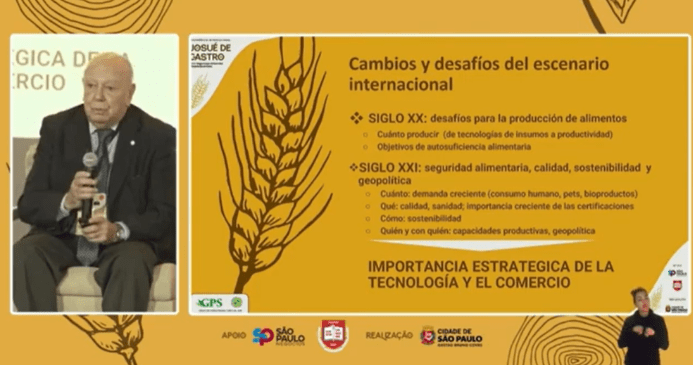Clarín (Argentina), 12 de noviembre de 2022.
In the Egyptian city of Sharm El Sheik, where the 27th Conference of the Parties to the UN Framework Convention on Climate Change (COP27) is taking place, farmers, ranchers and representatives of the public sector from the Americas highlighted the good environmental practices of the sector that guarantees food security in the world and reaffirmed the key role of science for the formulation of pro-nature policies in the region.
At the event "Climate-smart production systems: solutions based on nature and the role of the farmer" organized by the Argentine Association of No-Till Producers (AAPRESID), the Southern Producers Group (GPS) and the Argentine Association of Consortiums Regional Agricultural Experimentation Organizations (AACREA), the entities reaffirmed the commitment of agriculture and livestock in the Americas with regenerative practices for the protection of soil and other natural resources and with production that advances to reduce carbon emissions to zero.
The event was attended by representatives of producer organizations from the United States, Brazil, Uruguay, and Argentina, among other countries, the Argentine ambassador to Egypt, Eduardo Varela, and the president of the Canadian Federation of Agriculture.
The Director General of IICA, Manuel Otero Otero, welcomed the participants and highlighted the importance of the Americas as the continent that guarantees that humanity can feed itself. "We are making substantial contributions to confront climate change and we have to show this with pride and strength, recognizing that we have agri-food systems that can be perfected, but that they are by no means failed," he remarked.
From AAPRESID, its vice president, Marcelo Torres, said: "We work with strategies aimed at keeping soils alive and their implications for the efficient use of water, less dependence on synthetic inputs and maximizing carbon sequestration." The director stressed that "Argentina is already a leader in soil care, in erosion control, in the use of technologies and agricultural innovation."
“We understand the challenges and we are the first to respond, because we have social responsibility. The Canadian beef industry has a great sustainability story to share about the connection between cattle farming and the environment,” said Bob Lowe, president of the Canadian Cattlemen’s Association.
Cecilia Jones, coordinator of the Sustainability and Climate Change Unit of the Ministry of Livestock, Agriculture and Fisheries of Uruguay, meanwhile, highlighted Uruguay's work to take science and turn it into public policies to produce with less impact on the environment. “These are simple rules that serve to say 'this is the way to produce'. We work with producers and the academy to have consistent policies.”
For his part, Eduardo Bastos, CEO of My Carbon, a Minerva Foods company, referred to the importance of taking advantage of sustainable production in the Americas. “We can do more: offer solutions and capture more and more carbon; we can do what many cannot do. We have a great opportunity to translate this into the supermarket, with food traceability. It is possible to eat steak or wear leather with zero emissions and we know that we are the world's great food basket," he said.
The Home of Sustainable Agriculture of the Americas is a pavilion that IICA has erected at COP27 and is a space devoted to sustainable agriculture and the agrifood systems of the Americas. It showcases the key role of the agriculture sector in providing climate solutions and global food security, while also highlighting the contributions of producers and other sector stakeholders in climate change adaptation and mitigation.
Since COP27 began, senior Latin American officials, as well as representatives from the private sector and international organizations have been visiting and participating in activities at the pavilion, which is operating under the slogan: “Feeding the World, Nurturing the Planet”. The structure is located in the Sharm el-Sheikh International Convention Center – the epicenter of the global climate summit.
.
.



